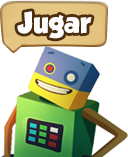
Thinking about your kids’ future can be a real headache. Your kids are at an age where they can’t see the big picture and won’t decide what they want to do with their lives. The upside is that they are also at an age where you can try to get them into a variety of activities so you can see if they are interested. If they’re not into a particular activity, don’t push it. Instead, pivot to some other activity.
In today’s digital age, children are encouraged to learn the basics of coding. You can start teaching them to program from early ages by introducing them to logic and logic functions, beginning with simple commands that can direct a robot or a toy. This lays the foundation for learning how to program. If kids are taught to think logically at a young age, they will be able to learn programming more easily when they get older. Even if your kid isn’t interesting in coding as they get older, the ability to understand basic programming concepts and to think logically is a very rewarding life skill.
Introducing simple games like placing gears in the correct order so that a toy can work delivers key concepts in a subtle way that can be further elaborated upon as kids move from the basics to more advanced concepts. Games can evolve into writing a few lines of code or using interlocking code blocks. These concepts can be delivered through a fun and interesting experience.
Fun activities ignite a child’s curiosity. Children will be excited to learn more about a programming language if they can use it to fly a drone or move a robot. Game-based programming and programming games can be very interesting experiences for kids. Curiosity about the end of a game will keep kids excited about programming and believing in the power and the applications of learning to code.
When you try to get kids into learning to code, it is important to take great care to assess their progress. RoboGarden has paid a great amount of attention to this part of their curriculum. With its intelligent hinting system and an infinite number of trials, the RoboGarden platform helps students progress on their own without handing them the correct answer or leaving them stuck with no hints.
Proper assessment modules will help kids work out the answers to challenges without feeling like they’re stuck on a certain mission. Instead of feeling discouraged or bored, kids will move through missions quickly in a race to reach the end of an adventure as fast as possible. They will even look forward to the next adventure.
If you succeeded in piquing your child’s interest in programming, you can help them shape their future and help them turn that interest into passion that eventually evolves into a successful career as a programmer, a web developer, or a data scientist.
